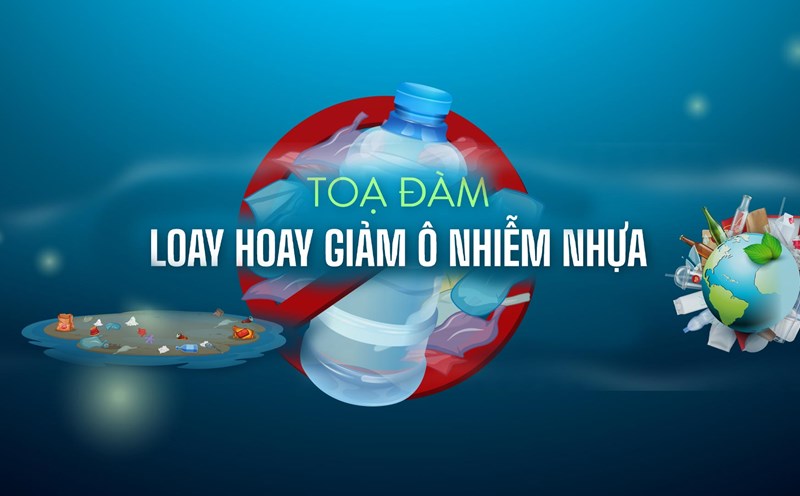Potential dangers
Ms. Ho Thi Kim Ngan - Deputy Head of the Department of Legal Policy - Labor Relations, Vietnam General Confederation of Labor - said that according to the report of the United Nations Environment Program (UNEP), environmental pollution from plastic waste is becoming the top pressing issue that countries around the world are facing. Every year, about 430 million tons of plastic are produced in the world, mostly as disposable products, less than 10% are recycled.
micro-lastic grains enter food, water, and air. It is estimated that each person on the planet can receive more than 50,000 microplasts per year, which is harmful to human health and ecosystems.
In Vietnam, about 1.8 million tons of plastic waste are released into the environment each year, of which 0.28 to 0.73 million tons are discharged into the sea, only about 27% of the plastic waste is recycled and exploited by facilities and businesses.
The treatment and recycling of plastic waste still has many limitations when up to 90% is treated by burying, landfill, incineration and only the remaining 10% is recycled, leading to a burden on the environment, which can even lead to a "white-polluted" disaster.
Dr. Phan Quang Thang - Institute of Energy Science, Technology and Environment, Vietnam Academy of Science and Technology - said that plastic waste is directly contaminated with toxic substances in food and drinks, which is the cause of hormonal imbalance and a potential danger to cancer diseases.
Developing a circular economy, reducing plastic waste
Dr. Luu Duc Dien - Aquaculture Research Institute II - said that developing a circular economic model is a good solution to reduce plastic waste and the harmful effects of plastic waste.
Dr. Dien cited an example from the Trade Union of Hoang Mai Joint Stock Company (Quang Ngai province) in implementing the "scrap collection model" among union members and employees. After working hours, union members and workers in each department and union group collect the scrap from the department they are in charge of and collect it in a designated place. Every two months, all the scrap from the groups will be collected and sold to scrap collection facilities. Since then, Hoang Mai Trade Union has collected from 8 to 15 million VND annually from scrap products contributed to the Trade Union fund to visit and support union members and workers in difficult circumstances, those who are sick, annual Tet gifts and do social and charity work.
Doing the above not only helps the Trade Union have more funding but also contributes to reducing plastic waste and effectively protecting the environment, said Dr. Dien.
Dr. Thang said that the trade union needs to continue to propagate, educate and communicate about the harmful effects of plastic waste, launch to reduce the use of plastic products, prioritize the use of recycled and environmentally friendly products among workers. The State needs to have policies to encourage waste classification at source, tighten management, and punish the act of treating plastic waste into the environment.
Mr. Nguyen Trung Ngan - Head of the Legal Policy Department of the Ba Ria - Vung Tau Provincial Federation of Labor - said that when businesses see it as beneficial, they will do it immediately. Therefore, trade unions need to coordinate with businesses to promote the circular economy, limit waste in general and plastic waste in particular. Mr. Ngan also said that it is necessary to increase propaganda and promote the limitation of plastic waste in the field of education, to educate students from the beginning.












